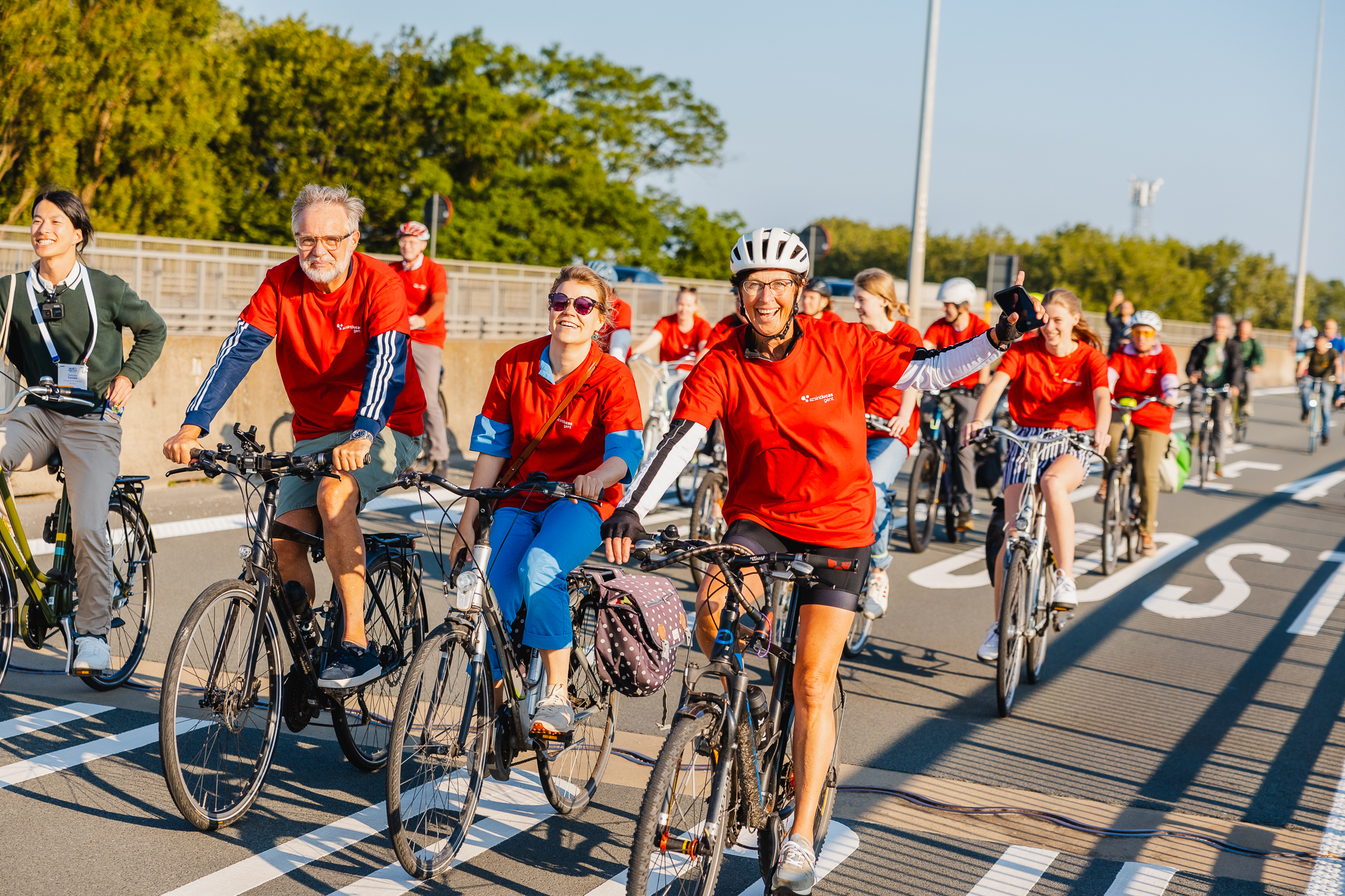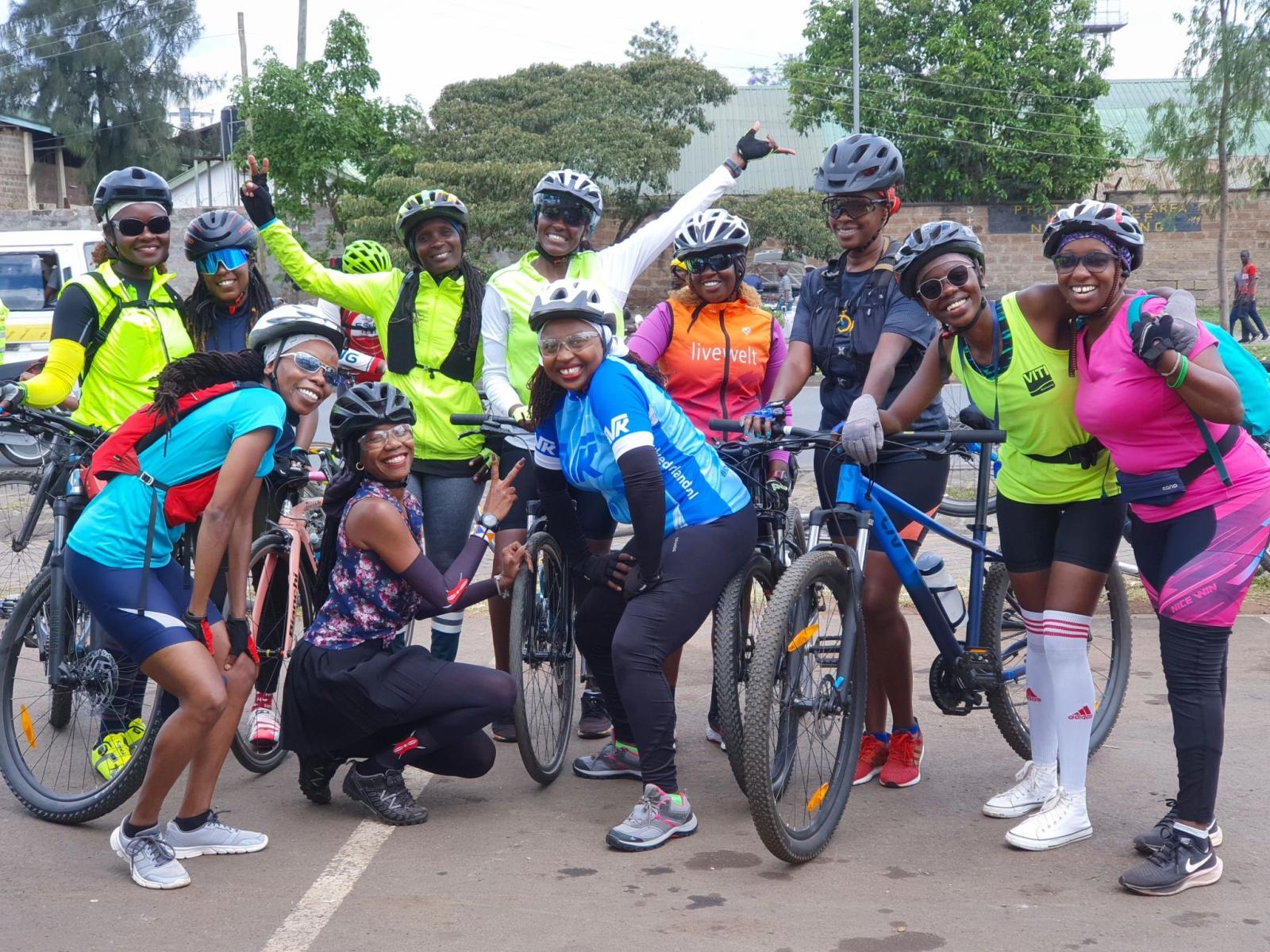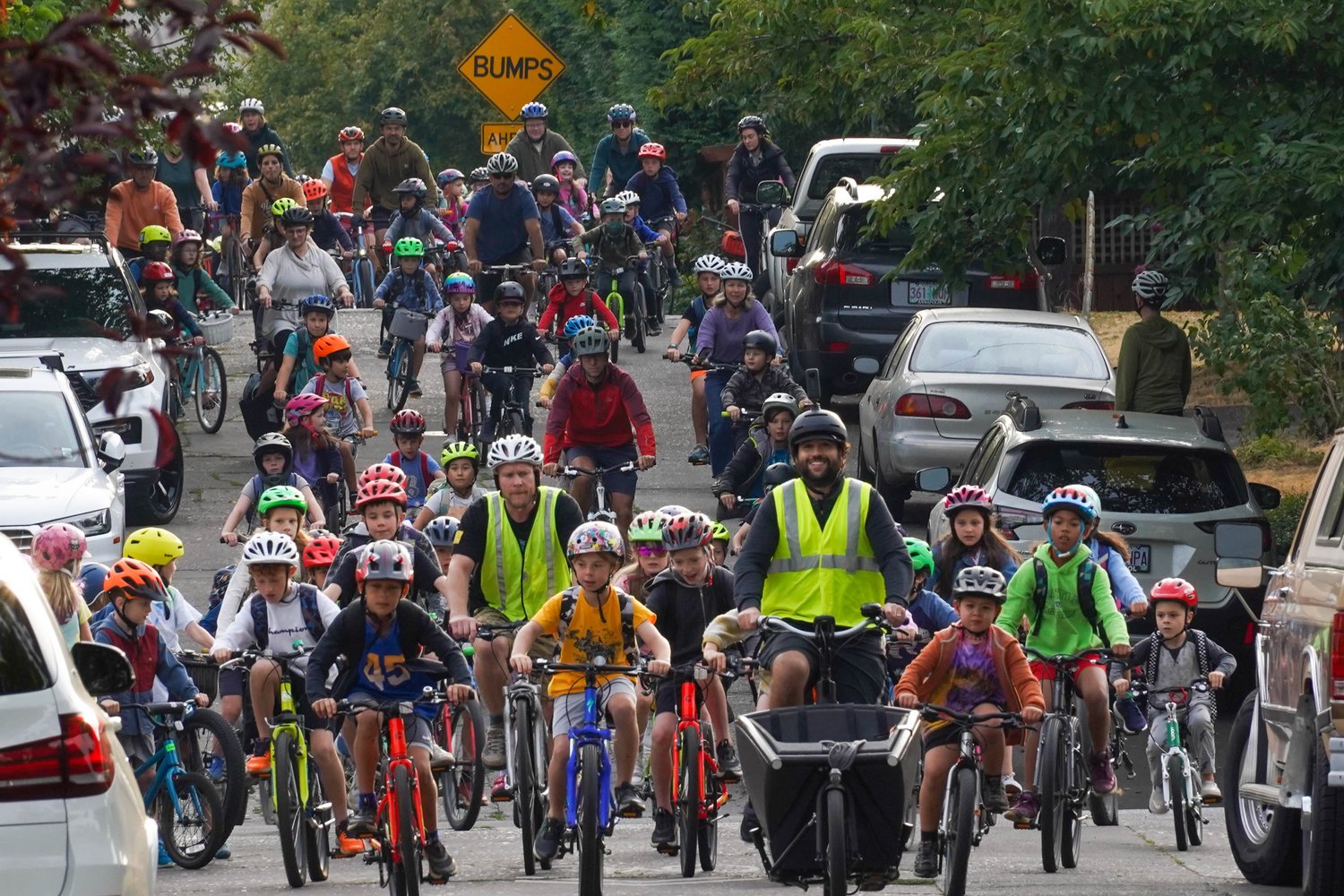
Cycling for Connection: The Transformative Power of Community Bike Rides
Creating the change that is needed to enable more and better cycling is a complex process. Significantly increased levels of cycling require investment in improved and safer cycling infrastructure as well as policies and legislation that enable and promote active mobility. Community can be another important factor. At Velo-city earlier this year in Ghent, we heard from community ride organisers from around the world and experienced the concept ourselves at the Velo-city bike parade. Read on to discover how these rides are making a difference globally!
Critical Mass Nairobi
Originating in San Francisco in the early 1990s, Critical Mass has become a global phenomenon, with the mass bicycle rides today taking place in countless cities, usually on the last Friday evening of every month.
One especially noteworthy edition is Critical Mass Nairobi, which Cyprine Odada helped transform into Africa’s largest non-competitive cycling movement. Cyprine initially joined Critical Mass to make friends and connect with other like-minded people. The group was small back then and did not meet regularly, so she took the initiative to keep the group alive and safe from disbanding. Her efforts paid off as the group expanded, fostering friendships and even romantic relationships! The joy that cycling in a community was bringing them kept people coming back and inviting their friends to join.
As an urban planner, Cyprine quickly realised the shortcomings of Nairobi’s cycling infrastructure, which motivated her to advocate for change. Many people join the rides in Nairobi every month, but a lot of them only cycle once a month when the Critical Mass numbers provide safety. To encourage more frequent cycling, Cyprine and her team implemented bike trains; a series of cycling groups who start in different neighbourhoods and follow safe routes. Several pick-up points along the way enable everyone to join in at a convenient time and place.
The local government in Nairobi understands that Critical Mass is doing a lot of work for them in carrying out sustainable mobility advocacy. Yet advocacy that is not supported by policy is weak, which is why Cyprine hopes that the city will pick up some of Critical Mass’ plans for sustainable mobility, alleviating Nairobi’s infrastructural challenges and continuing to build community through cycling.

Critical Mass Nairobi. Photo credit: Alice Kivuva
Be Women Be Visible: The Fancy Women Bike Rides
Another community cycling movement that made waves globally is “Fancy Women Bike Rides (FWBR)”, initiated in 2013 by Sema Gür and Pinar Pinzuti in Izmir, Turkey. This annual event saw women dressing up in fancy outfits and cycling to raise awareness for events like Car Free Day and European Mobility Week. While the movement was decidedly apolitical – flags and logos were not allowed – the rides were still a platform to advocate for safe cycling infrastructure.
FWBR aimed to highlight the need for cycling infrastructure that accommodates and promotes women cyclists. By dressing up and cycling en masse, participants challenged stereotypes and demonstrated that cycling could be both a practical and fashionable mode of transportation. In 2023, the final edition of FWBR was celebrated in more than 200 cities across 30 countries. Gür and Pinzuti declared that the movement's goals had been achieved, marking the end of an era. The lasting impact of the rides, however, remains, reminding participants and spectators of the power of collective action and solidarity.
Photo credit: Fancy Women Bike Rides
Riding the Bike Bus: Fun and safety on the way to school
Unfortunately, most cities are not designed for children to safely ride their bikes to school. Sam Balto, a physical education teacher working at a school in Portland, Oregon in the United States, therefore took inspiration from other community bike rides to get the kids in his area to cycle more. A bike bus, or bicibús, refers to a group of students, usually accompanied by adults, riding their bike to school together. Though bike buses have existed for decades, they have surged in popularity after being implemented in Catalonia, Spain during the Covid-19 pandemic.
Sam Balto started Bike Bus Portland in spring of 2022, to commemorate Earth Day. Since then, the bike bus has been a safe opportunity for the children of his school to cycle to class every Wednesday. Regardless of weather conditions, the kids are always motivated to join the bike bus on their way to school because they love the social aspect of it. And it’s not just the children who get to enjoy time with their friends during the rides; the involved parents and volunteers experience social connectedness and community as well. As an added bonus, the bike bus reduces the number of cars on the streets, making the ride even safer and decreasing noise and air pollution. The success of bike buses underscores a key belief among cycling advocates: designing a street that is safe enough for children to ride their bikes is beneficial for everyone!

Photo credit: Jonathan Maus/BikePortland
The Velo-city Bike Parade
What we can take away from these examples of community bike rides, is that there is not just safety in numbers but also joy in numbers. Community bike rides are more than just a mode of transport or a leisure activity; they are powerful tools for social change and community building. They demonstrate the potential of cycling to bring people together, advocate for safer infrastructure, and promote sustainable mobility.
At Velo-city 2024 in Ghent – like previous editions of Velo-city – we got to experience this firsthand at the bike parade. We cycled all throughout the city, crossed several bridges and even took over a part of the highway to ride our bikes there. Accompanied by good music and smiling faces, the parade was a powerful motivator to continue advocating for more and better cycling in the future.
Enjoy this video by Streetfilms of the bike parade at Velo-city 2024 in Ghent!
Network/Project Involved:
Contact the author
Recent news!
Upcoming events
Contact Us
Avenue des Arts, 7-8
Postal address: Rue de la Charité, 22
1210 Brussels, Belgium









